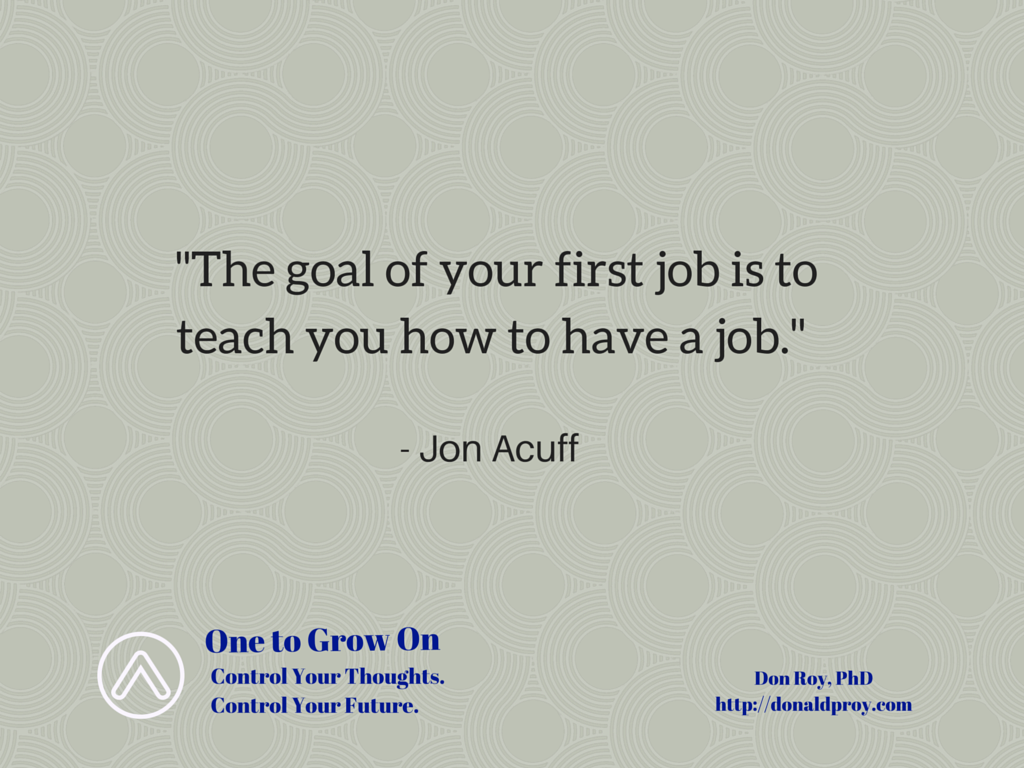Late spring is an exciting time of year for many people as graduating college students experience a rite of passage into the next phase of their lives. The National Center for Education Statistics projects 1.8 million students will receive bachelor degrees during the 2015-2016 academic year. Throw in master and doctoral degree recipients, and an estimated 2.6 million people will celebrate reaching an education milestone. Their graduation begs the inevitable question: What’s next? For the sake of personal brand development, the best answer to that question could very well be “get a job.” It’s time to move from the classroom to the front lines of your career, sharpening skills that are at the heart of the value you offer others.
Get Job Experience- Literally
A professional career is more like a winding road with unexpected turns than a straight line. Many people find themselves in a fulfilling career that is removed from their field of study in college. I make this point to bring out the importance of getting a job… any job to launch your career.
In his book Do Over, author and career expert Jon Acuff says the purpose of your first job is to learn how to have a job. Reflecting on my first professional job thirty years ago, I see that Acuff’s message is spot on. Your education exposes you to concepts and knowledge in the discipline of your major. But, when you take your first job you realize there are many situations and tasks that were never covered in Chapter Eight or on the final exam. How do you resolve conflict within an employee team? What is the best approach for soothing an irritated customer? Why do all project team members not share your focus on meeting the deadline? You will not know the answers to those questions until you gain experience dealing with them. Heck, you may not even realize those questions exist until you face them on the job.
Skills Development and Your Personal Brand
Skills are a key component of the Makeup dimension of your personal brand. While certain abilities or competencies are obviously important to one’s professional success (e.g., a web developer’s knowledge of relevant programming languages), other skills are not necessarily taught formally like hard skills but are important, nonetheless.
Jon Acuff calls these abilities “invisible skills.” They tend to be skills applicable regardless of your position or industry. Examples include critical thinking, resolving interpersonal conflict, and empathy. These “soft skills” are more difficult to teach using formal methods than hard skills. Yet, soft skills are essential to effectively working with others.
Beat Your Competition
Enhancing invisible or soft skills in your brand Makeup is a prime way to set yourself apart from other early career professionals. Differentiating yourself through strengthening skills can accelerate advancement in an organization or make you more marketable if you look for opportunities elsewhere. Remember those 2.6 million graduates this year? They represent competition. So do the graduates from 2015, 2014,… not to depress you, but you have a lot of competition.
If you are a member of the Class of 2016, accept my congratulations. You did it… now get a job! Not for the same reasons your parents might have for you to be gainfully employed (although paychecks can come in handy), but for the sake of developing skills and ultimately, your brand.


You can certainly see your skills within the work you write.
The world hopes for even more passionate writers such as you who are not afraid to say how they believe.
At all times follow your heart.